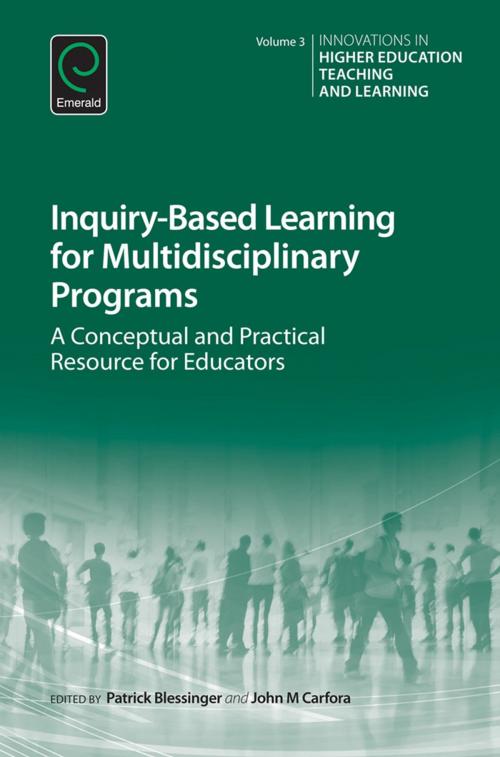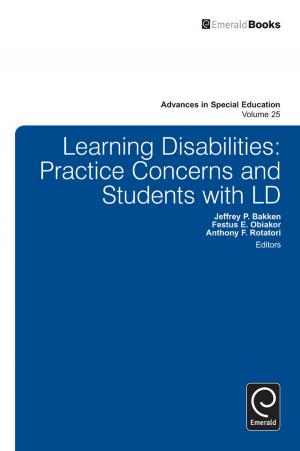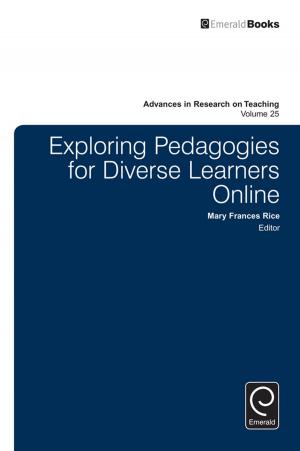Inquiry-Based Learning for Multidisciplinary Programs
A Conceptual and Practical Resource for Educators
Nonfiction, Reference & Language, Education & Teaching, Educational Theory| Author: | ISBN: | 9781784418472 | |
| Publisher: | Emerald Group Publishing Limited | Publication: | May 20, 2015 |
| Imprint: | Emerald Group Publishing Limited | Language: | English |
| Author: | |
| ISBN: | 9781784418472 |
| Publisher: | Emerald Group Publishing Limited |
| Publication: | May 20, 2015 |
| Imprint: | Emerald Group Publishing Limited |
| Language: | English |
Inquiry-based learning (IBL) is a learner-centered, active learning environment where learning is cultivated by a process of inquiry owned by the learner. It has roots in a constructivist educational philosophy and is oriented around three components: 1) exploration and discovery (e.g. problem-based learning, open meaning-making), 2) authentic investigations using contextualized learning (e.g. field and case studies), and 3) research-based approach (e.g. research-based learning, project-based learning). IBL begins with an authentic and contextualized problem scenario where learners identify their own issues and questions and the teacher serves as guide in the learning process. It encourages self-regulated learning because the responsibility is on learners to determine issues and research questions and the resources they need to address them. This way learning occurs across all learning domains. This volume covers the issues and concepts of how IBL can be applied to multidisciplinary programs. It serves as a conceptual and practical resource and guide for educators, offering practical examples of IBL in action and diverse strategies on how to implement it in different contexts.
Inquiry-based learning (IBL) is a learner-centered, active learning environment where learning is cultivated by a process of inquiry owned by the learner. It has roots in a constructivist educational philosophy and is oriented around three components: 1) exploration and discovery (e.g. problem-based learning, open meaning-making), 2) authentic investigations using contextualized learning (e.g. field and case studies), and 3) research-based approach (e.g. research-based learning, project-based learning). IBL begins with an authentic and contextualized problem scenario where learners identify their own issues and questions and the teacher serves as guide in the learning process. It encourages self-regulated learning because the responsibility is on learners to determine issues and research questions and the resources they need to address them. This way learning occurs across all learning domains. This volume covers the issues and concepts of how IBL can be applied to multidisciplinary programs. It serves as a conceptual and practical resource and guide for educators, offering practical examples of IBL in action and diverse strategies on how to implement it in different contexts.















